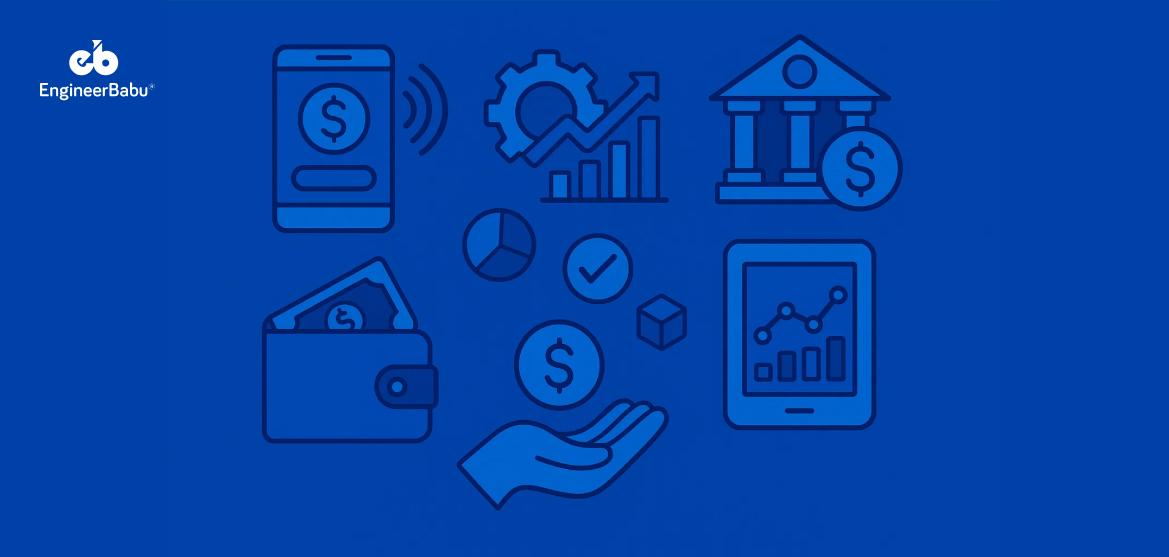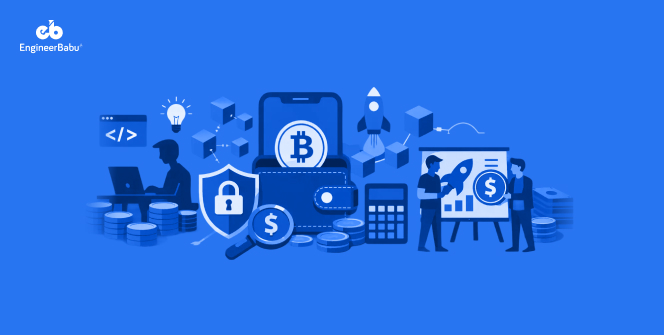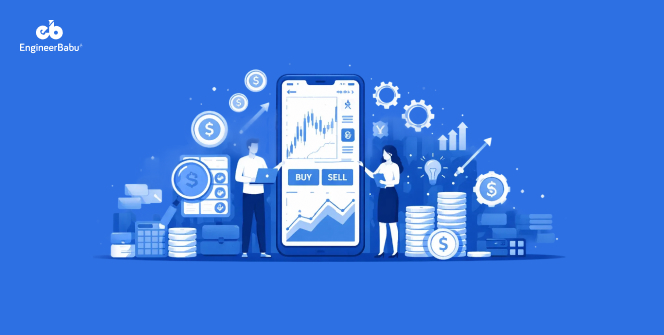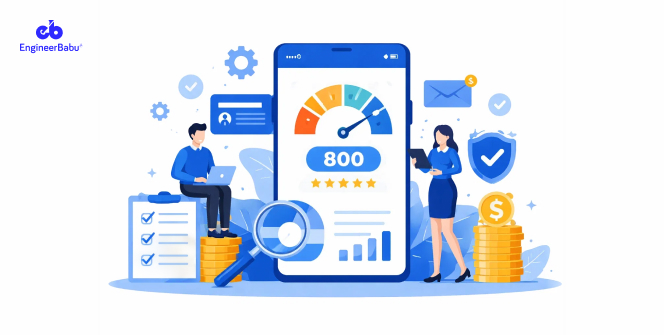Think about your last financial interaction, did you visit a bank branch or open an app? For most people, it’s the latter. Fintech apps have quietly transformed everything from everyday payments to complex investment decisions, making financial services faster, easier, and more accessible than ever before.
And adoption is widespread. A recent report by ESET found that almost two-thirds (62%) of consumers worldwide use some form of fintech app or platform. That’s a clear signal: mobile-first finance is no longer a trend, it’s the standard.
So, here, we’ll explore the main types of fintech apps, including mobile banking, P2P payments, RegTech, cryptocurrency, lending, and emerging categories like BNPL and neobanks. Each category addresses unique financial needs but collectively shapes the future of how we interact with money.
Why Fintech Apps Dominate the Market Today
Fintech apps have reshaped financial services by making them faster, smarter, and more transparent. Traditional banking and financial interactions often involved long waiting times, complex paperwork, or physical visits. Now, customers expect everything, from opening an account to investing, to be completed instantly on their mobile screens.
One reason the types of fintech apps continue to grow is changing consumer behaviour. People want digital-first experiences, seamless payments, and self-service options. The rise of Gen Z and millennials as primary banking customers has only accelerated this shift, with mobile-first brands often becoming their first choice over traditional banks.
Another factor is competition. Fintech startups are nimble, offering lower costs, better interfaces, and features powered by AI and ML in fintech.
Traditional banks are responding by adopting similar models, blurring the line between old and new. This dynamic has made exploring different types of fintech apps crucial for both financial institutions and tech-driven entrepreneurs who want to stay ahead.
Related: How to build a fintech app
Core Types of Fintech Apps
Fintech apps aren’t all built the same. Each category solves a different financial challenge and appeals to a unique user base. Let’s explore the main ones.
Mobile Banking Apps
Mobile banking apps are no longer just digital replacements for physical branches. They offer account access, fund transfers, and bill payments within seconds, while also supporting features like digital onboarding.
Increasingly, banks are adopting AI in banking to enhance fraud detection and deliver personalised recommendations.
Popular examples include Revolut, which set new benchmarks for user-friendly banking while building ecosystems that prioritise customer convenience and security.
Payment & Money Transfer Apps
From contactless in-store payments to international remittances, payment and transfer apps have become indispensable. They integrate features such as QR scanning, wallet-to-wallet transactions, and instant peer-to-peer transfers.
For businesses evaluating the types of fintech apps, payment platforms are among the most impactful. Examples include PayPal and Venmo.
Investment & Trading Apps
These apps transform how individuals approach wealth-building. From buying stocks and bonds to investing in mutual funds and cryptocurrencies, they place powerful tools in every user’s hands. Robo-advisors now make personalised strategies accessible.
Popular platforms like Robinhood and eToro have democratised investing, enabling younger generations to trade with ease. So, by combining simplicity with analytics, these apps allow anyone to control their financial future without the barriers of traditional brokers.
Lending Apps
Lending apps are disrupting traditional credit by offering quick approvals, microloans, and peer-to-peer lending opportunities. Automated KYC and AI-driven risk scoring make the process frictionless. Among the diverse types of fintech apps, lending platforms stand out for inclusion.
Market leaders like SoFi and Upstart have gained popularity by providing customers with fast credit access while reducing operational costs for lenders through advanced digital verification and decision-making systems.
Insurance Apps (InsurTech)
Insurance apps bring simplicity to one of finance’s most complex areas. Customers can browse policies, receive reminders, and file claims instantly. Many insurers use chatbots for 24/7 support and AI for fraud detection.
Apps like Lemonade and Allstate Mobile highlight how insurance technology can make policy management transparent, user-friendly, and trustworthy. Thus, helping customers feel supported while giving insurers greater efficiency and data-driven insights.
Personal Finance & Budgeting Apps
Budgeting apps are designed to help users control daily money management. By syncing with bank accounts, they categorise spending and suggest savings opportunities. As one of the fastest-growing types of fintech apps, they encourage financial discipline.
Leading apps like Mint and YNAB provide real-time insights that reduce financial stress, empowering users to plan for both immediate needs and long-term financial goals with clarity.
Cryptocurrency & Blockchain Apps
Crypto and blockchain apps power the decentralised finance movement. From trading platforms to wallets, they allow users to buy, sell, and securely store digital assets. Blockchain extends its use to smart contracts and decentralised lending.
Popular platforms like Coinbase and Binance dominate this space, providing secure trading and innovative financial tools that appeal to both beginners and advanced investors.
RegTech Apps
Compliance remains one of finance’s toughest challenges. RegTech apps automate KYC, AML checks, and risk monitoring. They reduce manual effort and ensure compliance with regulations. For businesses wondering what is Regtech?, it’s the technology making financial institutions more efficient and trustworthy.
Leading platforms like ComplyAdvantage and Trulioo showcase how digital compliance solutions simplify operations. That too, while helping firms avoid costly penalties and regulatory hurdles.
Emerging Categories of Fintech Apps
Beyond the core offerings, new categories are redefining fintech by merging technology with customer-first innovation.
Neobanks and Challenger Banks
Neobanks are digital-only banks built for a mobile-first audience. They skip physical branches and focus on offering simplified banking experiences with lower fees, faster transactions, and global accessibility.
Through features like instant account creation, budgeting tools, and integrated savings goals, neobanks are challenging traditional banks. Popular player such as Monzo highlight what’s possible with neobank app development, seamless onboarding, real-time insights, and customer-first design that traditional banks struggle to match.
BNPL (Buy Now, Pay Later) Apps
BNPL apps are transforming how consumers pay by allowing purchases to be split into interest-free instalments. Retailers partner with these platforms to attract younger buyers, while users enjoy financial flexibility.
As part of the broader types of fintech apps, BNPL solutions are fast becoming mainstream. For companies entering BNPL app development, examples like Klarna show how seamless integration into e-commerce ecosystems can drive both customer loyalty and higher sales volumes.
Open Banking-Powered Apps
Open banking apps allow customers to securely share financial data across multiple institutions. Thus, enabling personalised offers and better financial insights. They empower users with a holistic view of accounts, loans, and investments, eliminating the need for fragmented tools.
Among the types of fintech apps, open banking stands out for its ability to bridge banks and third-party fintech providers. Examples like Plaid and TrueLayer highlight how these platforms create transparency while giving customers more control over their data.
Conclusion
The growth of fintech is proof that customers demand speed, simplicity, and security in financial services. From banking and payments to lending and RegTech, every category opens fresh opportunities for innovation.
Choosing the right partner for your project is critical, especially when compliance, trust, and scalability are on the line.
EngineerBabu, a leading fintech app development company, helps businesses design and launch apps that meet market needs while standing out from competitors.
So, ready to build? Let’s shape the future of finance together.
FAQs about Types of Fintech
1. What are the main types of fintech apps?
The most common categories include mobile banking, payments, investments, lending, insurance, budgeting, crypto, and RegTech. Each type serves a specific financial need and caters to different user expectations.
2. Why are the types of fintech apps growing so quickly?
Consumer demand for digital-first solutions, lower costs, and faster services is driving rapid adoption. Startups and banks alike are expanding into new app categories to stay relevant in a competitive financial landscape.
3. What technologies power fintech applications?
AI, machine learning, blockchain, and secure cloud infrastructure are among the most widely used technologies. They enable real-time analytics, fraud detection, personalisation, and regulatory compliance at scale.
4. Are fintech apps secure to use?
Yes, if built properly. Fintech apps use encryption, biometric authentication, and compliance with standards like GDPR and PCI DSS to safeguard user data and ensure trust between customers and providers.
5. How can a business choose the right development partner for fintech?
Look for proven expertise, regulatory knowledge, and strong design capabilities. Partnering with a skilled fintech app development company ensures your app is secure, scalable, and built with long-term growth in mind.




